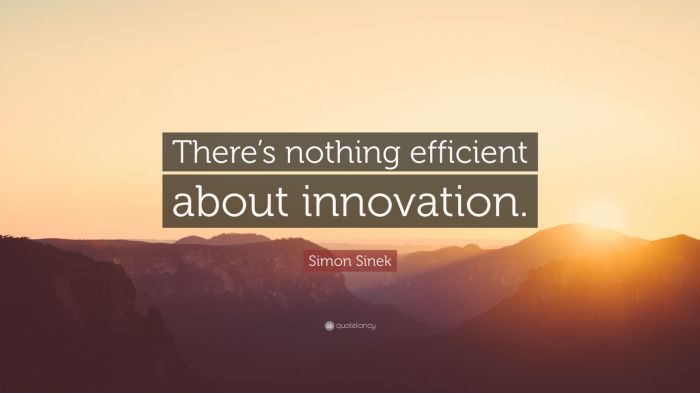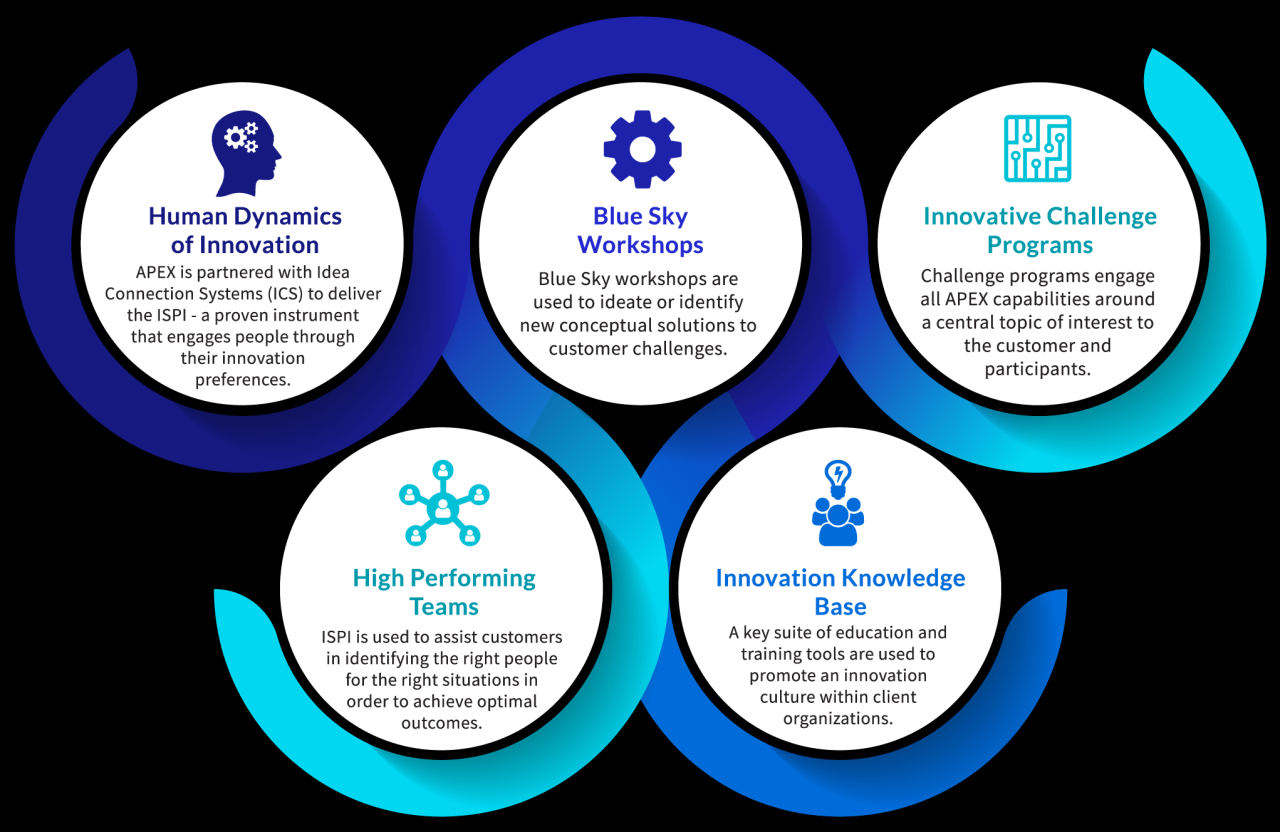Innovations typically happen quicker than expected, reshaping business, technology, and society at an unprecedented pace. This phenomenon, driven by collaboration, communication, and emerging trends, presents both challenges and opportunities that demand our attention.
The rapid pace of innovation has profoundly impacted business and technology, with examples ranging from the transformative effects of the internet to the disruptive potential of artificial intelligence. These advancements have created new markets, altered consumer behaviors, and spurred economic growth.
Impact on Business and Technology

Innovations frequently materialize sooner than anticipated due to several factors. Firstly, the rapid advancement of technology has reduced the time required for research and development. Secondly, the interconnected nature of the modern world allows ideas to spread and be adopted quickly.
Thirdly, the increasing pressure on businesses to innovate has created an environment where experimentation and risk-taking are encouraged.
Examples of innovations that have had a significant impact on business and technology include the internet, mobile devices, and artificial intelligence. These technologies have transformed the way we work, communicate, and access information. They have also created new opportunities for businesses and entrepreneurs.
Challenges and Opportunities, Innovations typically happen quicker than
- The rapid pace of innovation can create challenges for businesses and individuals alike. Businesses need to be able to adapt quickly to new technologies and business models. Individuals need to be able to acquire new skills and knowledge to remain employable.
- The rapid pace of innovation also creates opportunities for businesses and individuals. Businesses can use new technologies to gain a competitive advantage. Individuals can use new technologies to improve their lives and careers.
Role of Collaboration and Communication: Innovations Typically Happen Quicker Than

Collaboration and communication are essential for accelerating the pace of innovation. When people work together, they can share ideas and build on each other’s work. This can lead to new and innovative solutions that would not have been possible if people had worked independently.
It is important to create a culture that fosters innovation and risk-taking. This means encouraging employees to experiment and take risks. It also means providing them with the resources and support they need to be successful.
Examples of Successful Innovation Initiatives
- One example of a successful innovation initiative that was driven by collaboration is the development of the Linux operating system. Linux is a free and open-source operating system that has been developed by a global community of volunteers.
- Another example of a successful innovation initiative that was driven by collaboration is the development of the World Wide Web. The World Wide Web was developed by Tim Berners-Lee at CERN, the European Organization for Nuclear Research.
Impact on Society

The rapid pace of innovation is having a profound impact on society. New technologies are changing the way we live, work, and interact with each other. For example, social media has made it easier for people to connect with each other and share information.
E-commerce has made it easier for people to buy and sell goods and services. And mobile devices have made it possible for people to access information and stay connected anytime, anywhere.
The rapid pace of innovation is also creating new challenges for society. For example, the rise of artificial intelligence is raising questions about the future of work. And the spread of misinformation online is making it difficult for people to make informed decisions.
Examples of Innovations with a Positive Impact
- One example of an innovation that has had a positive impact on society is the development of vaccines. Vaccines have saved millions of lives and prevented countless cases of illness.
- Another example of an innovation that has had a positive impact on society is the development of renewable energy technologies. Renewable energy technologies are helping to reduce our reliance on fossil fuels and fight climate change.
Ethical Considerations
The rapid development of new technologies is also raising ethical considerations. For example, the development of artificial intelligence raises questions about the future of work and the potential for bias in decision-making. And the spread of misinformation online raises questions about the role of technology companies in protecting democracy.
Future Trends

Several emerging trends are likely to drive innovation in the future. These trends include the rise of artificial intelligence, the growth of the Internet of Things, and the increasing use of big data. These trends are likely to have a profound impact on the way we live and work.
Artificial intelligence is already being used in a wide range of applications, from self-driving cars to medical diagnosis. As artificial intelligence continues to develop, it is likely to have an even greater impact on our lives. For example, artificial intelligence could be used to develop new drugs, design new products, and even create new works of art.
The Internet of Things is another trend that is likely to drive innovation in the future. The Internet of Things refers to the growing number of devices that are connected to the internet. These devices can collect data and communicate with each other.
This data can be used to improve our lives in a variety of ways. For example, the Internet of Things could be used to optimize traffic flow, improve energy efficiency, and even predict crime.
Big data is another trend that is likely to drive innovation in the future. Big data refers to the large and complex data sets that are being generated by businesses and individuals. This data can be used to gain insights into customer behavior, improve product development, and make better decisions.
As big data continues to grow, it is likely to have an even greater impact on our lives.
Potential Implications for Businesses and Individuals
The emerging trends in innovation are likely to have a significant impact on businesses and individuals. Businesses will need to be able to adapt to new technologies and business models. Individuals will need to be able to acquire new skills and knowledge to remain employable.
The emerging trends in innovation also create opportunities for businesses and individuals. Businesses can use new technologies to gain a competitive advantage. Individuals can use new technologies to improve their lives and careers.
Common Queries
Why do innovations happen more quickly than expected?
A confluence of factors, including technological advancements, increased collaboration, and a heightened sense of urgency, contribute to the accelerated pace of innovation.
How can collaboration accelerate innovation?
Collaboration fosters cross-pollination of ideas, diverse perspectives, and access to specialized knowledge, leading to more rapid and impactful innovation.
What are the ethical considerations associated with the rapid pace of innovation?
Ethical considerations include privacy concerns, the potential for job displacement, and the responsible use of new technologies to ensure they benefit society.